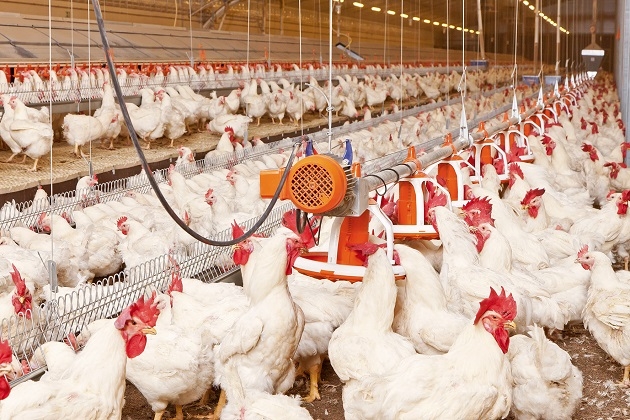Indonesian native plants are a source of biologically active substances that are widely used as traditional medicine in this country. In recent years, interest in the use of herbal medicine as a phytoadditive has increased, mainly because of government regulations to ban antibiotic growth promoters (AGP) in feed for broiler farms. This has led to a significant reduction in broiler production by more than 40%, which is why the huge losses in the poultry business are unavoidable. One solution to this problem is to use phytoadditive from plants to support poultry health and increase productivity.
Antibiotic Growth Promoter (AGP) is a small-dose antibiotic that is used as a supplement in animal feed. AGP works by suppressing stress, producing ammonia, reducing infection, reducing toxicity, and optimizing the absorption of nutrients from the feed into the intestinal wall. AGP types that are often used by farmers in Indonesia are zinc bacitracin, spiramycin, virginiamycin, bambermycin, tylosin phosphate, avilamycin, and enramycin.
The big challenge for broiler breeders in Indonesia is a variety of diseases that attack poultry both acute and chronic. They can pose huge economic risk as not all vaccines are available to prevent infectious diseases. Furthermore, extreme weather in Indonesia in recent years has incurred losses to farmers, such as high heat up to 43 ° C, and a decrease in humidity of up to 40%. The presence of mycotoxins in local maize as the main feed ingredient for chickens in Indonesia is also a problem, moreover, the application of biosecurity is not optimal in traditional farms.
As of early 2018, the use of AGP is banned in Indonesia, based on the Livestock and Health Law No. 18, 2009 junco No41 / 2014, article 22 paragraph 4c which states “every person is prohibited from using feed ingredients mixed with certain hormones or antibiotics as supplements”. This regulation was then followed by the cessation of the import of AGP including anticoxidiosis drugs, and only allowed the entry of antibiotics to treat the disease by a veterinarian’s prescription.
The AGP ban in Indonesia is important because of the high risk of illness and recurrence of disease. After the monitoring and evaluation, the use of antibiotics in feed can increase antibiotic resistance in animals and humans so that they can start genetic mutations in infectious disease agents that result in decreased effectiveness and function of antibiotic therapy in the treatment of diseases followed by the emergence of various types of low sensitivity to existing antibiotic. Therefore, this regulation cannot be bargained by farmers.
In Indonesia, on AGP ban issue, there has not been a solution on how resolve the decline in broiler production. Many broiler farmers have experienced disease 90-40, which is a decrease in the productivity of broiler chickens from 90% to 40%. AGP can no longer be bought by farmers, and the price of chicken meat on the market is relatively expensive and unstable. On the other hand, Indonesia is rich in biodiversity such as plants and animals, which has the potential as a natural supplement for human and livestock health. Many researchers in this country have studied the potential of natural food additives to increase animal productivity. AGP prohibition is an appropriate moment for collaboration of researchers and breeders to make natural antibiotic for healthier chicken. Some farmers have tried using phytoadditive to replace AGP, and they showed good results to improve productivity and quality of broiler chicken with turmeric, garlic, katuk leaves, moringa leaves, mangosteen peel, and green chiretta.
Author: Herinda Pertiwi, drh., MSi.





